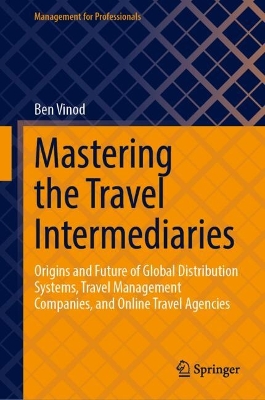Management for Professionals
3 total works
This book chronicles airline revenue management from its early origins to the last frontier. Since its inception revenue management has now become an integral part of the airline business process for competitive advantage. The field has progressed from inventory control of the base fare, to managing bundles of base fare and air ancillaries, to the precise inventory control at the individual seat level. The author provides an end-to-end view of pricing and revenue management in the airline industry covering airline pricing, advances in revenue management, availability, and air shopping, offer management and product distribution, agency revenue management, impact of revenue management across airline planning and operations, and emerging technologies is travel. The target audience of this book is practitioners who want to understand the basics and have an end-to-end view of revenue management.
There are several aspects of revenue management that are not covered in books and journal articles such as hotel pricing, hotel fully allocated costs, content parity, impact of Online Travel Agencies on hotels, competitive revenue management and attribute-based room pricing and inventory control which represents the last frontier in hotel revenue management with intelligent retailing. Leveraging emerging technologies, such as Artificial Intelligence and Blockchain and the future state of revenue management, are also addressed.
This book chronicles the role of travel intermediaries: global distribution systems (GDS), travel management companies (TMC), and online travel agencies (OTA) in the distribution of travel products. The book covers the historical development of these intermediaries and explores their current state and future prospects. Almost six decades after the introduction of computerized reservations systems and four decades after the introduction of Global Distribution Systems that allowed travel agents to make automated airline bookings, the distribution of air products is amid a major transition. A fundamental change is pricing power, which shifts from the GDSs to the airlines for the indirect channel. These changes are driven by advancements in technology, market economics, and airline cost controls, leading to the emergence of new revenue models that will permanently alter the landscape of air distribution. As a result, travel intermediaries are experiencing the effects of these turbulenttimes and must adopt innovative approaches and initiatives to adapt and transform their business models rather than maintaining the status quo. In addition to the ongoing transformation, over the next decade, the advancements in emerging technologies like blockchain and decentralized digital identity will further revolutionize the distribution landscape across all sectors of the travel industry.


